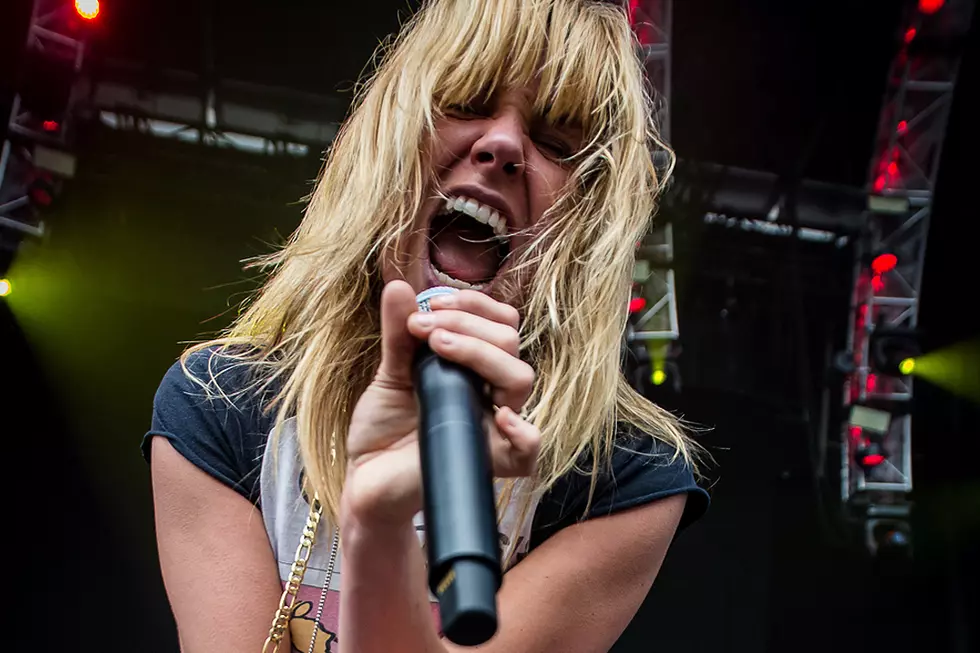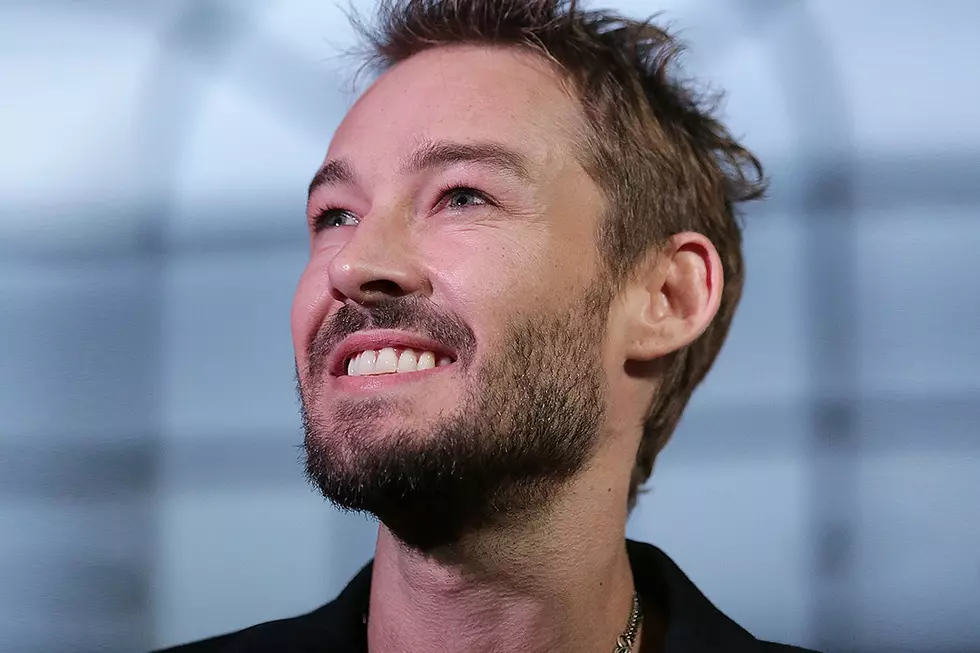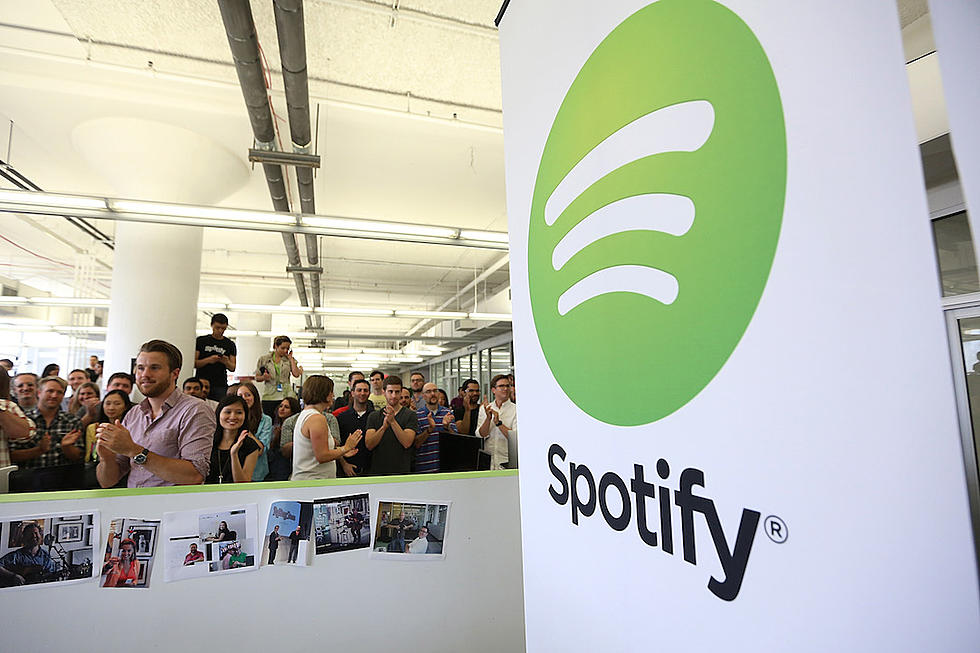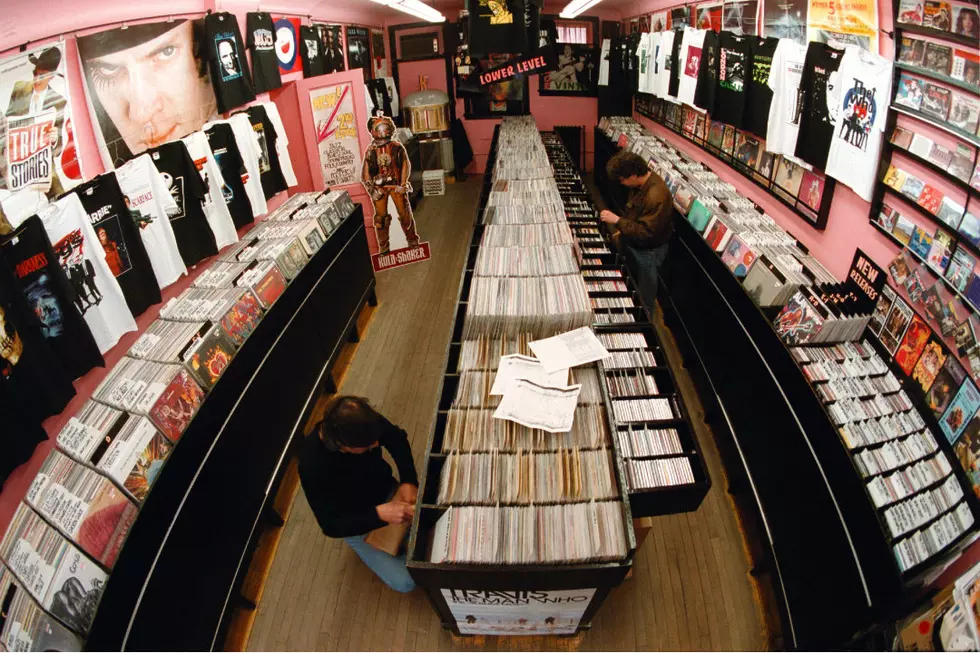
An Artist-Owned Tidal Is Not Just for Audiophiles, It’s for Everyone
Where else can you find Arcade Fire’s Win Butler and Regine Chassagne sandwiched between Alicia Keys and Beyonce? Or Jack White standing next to the cowboy hat-donning Jason Aldean and the robot helmet-wearing Daft Punk, for that matter? And where exactly will you hear someone open a press conference with a Jimi Hendrix quote and close it with Nietzsche?
Apparently the official relaunch of Jay Z’s Tidal streaming service -- that’s where.
As Fader amusingly pointed out, Tidal’s presser stage could have very well been the long-rumored Illuminati, but in truth, the group was the streaming service’s newly revealed, star-studded ownership. Seventeen in all, the lineup ranged from ringleader Jay Z and wife Beyonce to indie rock’s own power couple, Win Butler and Regine Chassagne. These key players -- which also includes Coldplay’s Chris Martin, Kanye West, Madonna, Deadmau5 and more -- ostensibly represent a turning point in a music industry that’s seen incrementally less and less value placed on those very artists’ work and livelihoods.
'Spotify is for everybody. You don’t even need to pay [for Spotify]! But for quality, you have to pay.'[/pullquotes]The Magna Carta Holy Grail rapper acquired Tidal earlier this month when he bought Sweden’s Aspiro. After some heavy and calculated marketing from the streaming service’s CEO Andy Chen, it was clear that Tidal had a mission in mind: It was hell-bent on separating itself from the pack -- namely Spotify, Beats Music and its other competitors -- by aiming its sights on serious audiophiles who are willing to shell out an extra $10 per month (a high-fidelity Tidal subscription goes for $19.99/month while Spotify’s premium service remains at $9.99) for superior sound quality in the form of a library of FLAC lossless sound files. Granted, Tidal will also offer a $9.99/month subscription for standard-definition files, but nevertheless, Chen’s message remains intact: “This service is not for everybody. Spotify is for everybody. You don’t even need to pay [for Spotify]! But for quality, you have to pay.”
The underlying marketing ploy geared toward an elite demographic of listeners was hardly veiled. So when all of your favorite artists stood shoulder-to-shoulder on the Tidal press conference stage, it was essentially a move to only further jostle a message down consumers’ throats that Chen had already made clear as day.
As such, Alicia Keys -- who acted as the spokesperson for the event -- relied on heavily emotional rhetoric and, to her credit, only a handful of Silicon Valley buzzwords rather than actually revealing, you know, actual details about what will separate Tidal from its competitors in terms of offerings; what makes it the groundbreaking music industry game-changer it’s alleged to be.
“Tidal will be … a place for connection between artists and fans that will deliver exclusive experiences that will be found nowhere else,” Keys said during the presser -- the only even remotely illuminating tidbit of her speech. It’s also the only portion that somewhat vouched for rumors that have been floating around suggesting that Tidal will receive exclusive rights, premieres and releases from artists ahead of its competitors.
While Keys may have kept the finer details close-lipped, only a few hours later, we were given an idea of how those exclusivity terms may manifest in the upcoming days, weeks and months. Jack White’s Third Man Records shared a Facebook post announcing that the White Stripes’ first-ever performance 15 years ago would be made available exclusively on Tidal, along with a Third Man Records-curated playlist.
This should come as no surprise considering Tidal is now the very first streaming service owned by musicians. Who better to negotiate exclusive rights and content from fellow artists than artists themselves? And who has more friends in high places than Jay Z, Beyonce and everyone else on that stage?
Of course, this is about much more than simply having the right network in place to gather content -- certainly Spotify, Apple’s Beats Music and Neil Young’s Pono must have that as well. Instead, Tidal is jockeying itself as a streaming service owned by the artists for the artists while maintaining the best interests of listeners, too.
That’s something that Keys’ rallying cry of a speech also obliquely touched on: “We have joined Tidal for the preservation of an industry.”
“Tidal is dedicated to cultivating a sound business enterprise that promotes the health and sustainability of our art and our industry around the world, because we believe it’s in everyone’s interests -- fans, artists and the industry as a whole -- to preserve the value of music and to ensure a healthy and robust industry for years to come,” Keys continued.
While putting Beyonce on a stage next to Win Butler is enough to fuel trending hashtags for … at least a week in this universe’s attention span, there’s no denying the importance of a streaming service owned by the ragtag group of artists spanning all genres that announced their commitment to Tidal yesterday.
At the very least, it’s a symbol of artists taking back control over their own art.
Yes, there is an initial, kneejerk response to that image, but there’s also something of true value there. At the very least, it’s a symbol of artists taking back control over their own art. The way the industry has been going, artists have steadily watched their power spin out of their reaches. Physical album sales are down and digital sales aren’t much better when fans can simply stream that music at no added cost. And by and large, average listeners have spoken and said that physical music ownership -- whether that means a vinyl collection or an expansive iTunes library -- doesn’t matter all that much to them. If they can get it for free, they will.
The value in the quality of sound is what listeners make of it. High-fidelity evangelists will only get so far preaching what average listeners are missing out on by listening to their compressed MP3s. If a listener isn’t interested in higher sound quality, you won’t convince them that those details are anything but irrelevant minutiae (sorry, Neil Young).
While discerning audiophiles may have been Tidal’s initial target demographic, the platform could also potentially reach fans who are concerned about the livelihood of their favorite artists -- artists who are increasingly vocal about barely-there streaming royalties. And if fans aren’t all that concerned about the value of their favorite musicians’ work, then maybe they will be persuaded by the exclusive content Tidal promises. After all, there are undoubtedly plenty of diehard White Stripes fans who will be more than willing to pay $20 per month to see that rare, first-ever TV appearance and other similar content. And the same is likely true of fans of Tidal’s other stakeholders like J. Cole, Nicki Minaj, Calvin Harris and so on and so forth.
Tidal’s potential resides beyond the allure of exclusive music or new releases that may or may not appear on Spotify an undetermined amount of time later. Jay Z’s streaming platform could unearth a so-far untouched realm of content that’s equally attractive to fans -- that is, untouched yet by streaming services. Rare video of live performances, specially curated playlists, artist interviews -- those are only the tip of the iceberg Tidal has at its fingertips. If Tidal commits to this approach, they’ll attract fans hungry for much more than new albums from their favorite bands; they’ll reach fans who want an even greater connection to those artists -- the connection Keys alluded to in her speech. And that’s a much larger portion of the market than Tidal initially targeted when it set its sights on audiophiles.
How will Tidal approach young, burgeoning and indie acts?
While an artist-owned platform marks an exciting step forward in the right direction, there’s still something starkly amiss about that Tidal stage. Sure, virtually every genre was represented, but the headpieces were some of the biggest names in their respective fields: Jack White, Beyonce, Kanye West, Jason Aldean, Madonna. They aren't exactly the voices of the people. That leaves one looming question: How will Tidal approach young, burgeoning and indie acts? How the streaming platform addresses this could help further set itself apart from its competition.
Spotify allows unsigned artists to make it onto its library with the help of distributors that then administer the -- albeit scant -- royalties. If Tidal is truly committed to providing artists a more humane wage, it won’t overlook indie musicians. By doing so, Tidal could not only distinguish itself as a streaming service by and for the artists, but also a destination for music discovery. If Jay Z’s platform attracts exclusive music from indie artists due to fair and competitive royalties, it could very well become a place listeners flock to hear big-name acts and discover artists we haven't yet heard.
More From Diffuser.fm









